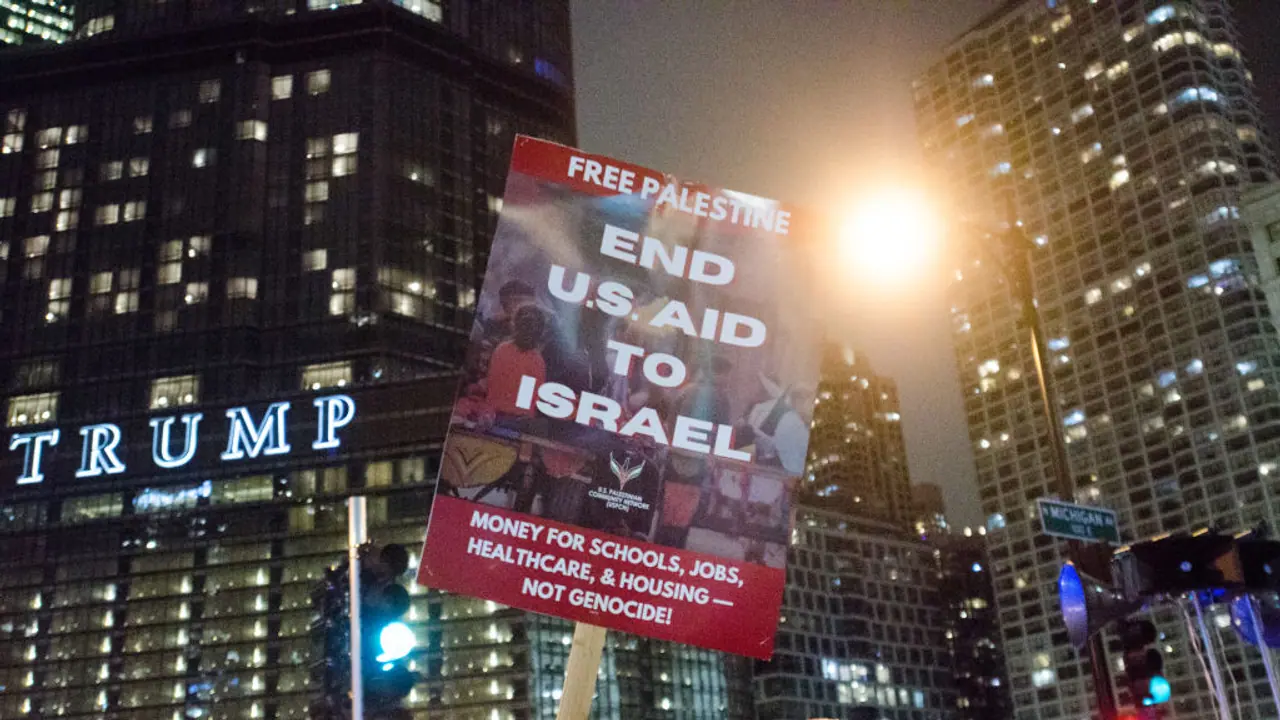Palestinians and Palestinian Americans have sued the US State Department, alleging it violated the Leahy Law by continuing to fund Israeli military units accused of human rights abuses.
The US State Department is facing a landmark lawsuit brought by Palestinians and Palestinian Americans, accusing the agency of bypassing a decades-old human rights law to continue funding Israeli military units allegedly involved in atrocities in the occupied Palestinian territories.

Filed on Tuesday in Washington DC District Court, the lawsuit marks the first legal challenge by victims of alleged human rights abuses against the State Department’s failure to enforce the Leahy Law. This 1990s-era law prohibits US military assistance to foreign security forces credibly implicated in gross human rights violations.
The plaintiffs include Amal Gaza, a pseudonym for a Gaza-based mathematics teacher who lost 20 family members, and Shawan Jabarin, director of the Palestinian human rights group Al-Haq, who was detained without charge for six years in the West Bank. They are joined by Palestinian American Said Assali, who says six of his relatives were killed in Israeli airstrikes on Gaza since October 2023.
“I’ve had immediate relatives, cousins, and other family that have been murdered in Israeli airstrikes,” Assali was quoted as saying to The Guardian. “As an American, this is a clear violation of our laws. The State Department is actively and aggressively carrying this out with our tax dollars.”
The lawsuit comes amid mounting criticism of U.S. support for Israel as the death toll in Gaza since last October reportedly approaches 45,000, and access to humanitarian aid remains severely restricted. The plaintiffs are seeking judicial intervention to compel the US to adhere to the Leahy Law, which has previously been used to curb human rights violations in countries like Colombia, Nepal, and Central America.
The complaint highlights allegations of torture, forced disappearances, prolonged detention without charge, and what plaintiffs describe as “genocidal” actions in Gaza, all carried out by Israeli military units receiving US support.
The lawsuit references findings from international judicial bodies such as the International Criminal Court (ICC), which issued arrest warrants earlier this year for Israeli Prime Minister Benjamin Netanyahu and former Defense Minister Yoav Gallant—warrants that the US government rejected.
Criticism of US complicity in Israeli military actions has grown in recent months. A report by The Guardian in January had revealed that top US officials quietly reviewed more than a dozen allegations of Israeli military human rights violations since 2020 but implemented special measures to shield Israel from consequences. This approach preserved US military aid to Israeli forces, even as sanctions were applied to other allies, including Ukrainian military units accused of violations.
In April, Reuters reported that senior US officials expressed private doubts to Secretary of State Antony Blinken about Israel’s assurances that it adheres to international humanitarian law in its use of US-supplied weapons. That same month, a coalition of 185 lawyers from within the Biden administration and private legal sector argued that Israel’s military actions likely violate US and international humanitarian laws. A similar sentiment was echoed by 20 White House staffers who dissented in November.
The lawsuit also revisits previous cases dismissed under the Leahy Law, including the 2022 death of 78-year-old Omar As’ad, a Palestinian American who died after being detained by Israeli soldiers in the West Bank.
The State Department has yet to comment on the lawsuit.
The plaintiffs argue that the lawsuit represents a crucial test for US accountability, claiming that special exemptions for Israel undermine the purpose of the Leahy Law and set a dangerous precedent. Human rights advocates say that while the law has been an effective tool for holding foreign military forces accountable, its inconsistent application for Israel reveals systemic flaws in US foreign policy.
